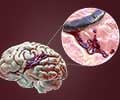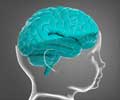Ultra-short HRV tests effectively measure autonomic function in TBI survivors in less than 1 minute, promising improved patient care and monitoring

Researchers from Universidade Federal de Santa Catarina have discovered that HRV can be effectively measured in TBI survivors using much shorter recordings of 30 to 60 seconds. This study is the first to show that ultra-short HRV assessments are reliable for this group, which could significantly improve patient care and research (1✔ ✔Trusted Source
Ultra-short heart rate variability reliability for cardiac autonomic tone assessment in severe traumatic brain injury
Go to source).
‘Doctors can now utilize ultra-short heart rate viability (HRV) tests to diagnose health issues in traumatic brain injury patients. #braininjury #HRV #TBI #medindia’





Advertisement
Heart Rate Variability in Brain Injury Survivors
“Measuring HRV provides a window into the autonomic nervous system, but the standard 5-minute assessment can be difficult for patients who struggle with prolonged recordings,” said Hiago Melo, a researcher at Universidade Federal de Santa Catarina and the study’s first author.“Our findings suggest we can get reliable HRV data in just a fraction of that time, making it feasible to integrate regular autonomic check-ups into clinical care and daily life for TBI survivors.”
The researchers analyzed ECG recordings from 48 patients one year after a severe TBI. By comparing HRV values calculated from the standard 5-minute recording to those from shorter segments of the same recording, they determined that ultra-short measures - articularly from 1-minute segments - strongly correlated with the 5-minute gold standard.
Advertisement
Importance of RMSSD in Monitoring TBI Patients
One specific HRV metric, root mean square of successive differences (RMSSD), proved most robust. RMSSD is thought to reflect parasympathetic (rest-and-digest) activity, an important aspect of healthy autonomic function often suppressed after brain injury.“RMSSD consistently showed the highest reliability across the ultra-short segments,” noted co-author Guilherme Fialho, a cardiologist, and professor at the Graduate Program in Medical Sciences. “This is promising, as RMSSD may be uniquely suited to capture the parasympathetic dysfunction commonly seen in TBI patients.”
According to the authors, ultra-short HRV could serve as an objective marker of post-TBI autonomic health, enabling clinicians to spot problems earlier and intervene more effectively. The study also paves the way for wearable devices that could discreetly monitor HRV during daily activities, providing real-world data on patient recovery.
“We’re excited about the potential for ultra-short HRV to enhance post-TBI care,” said senior author Roger Walz, professor at Universidade Federal de Santa Catarina. “By making autonomic assessment quicker and easier, we can expand how we track recovery in the clinic and beyond. It’s a simple yet powerful tool that could reshape our understanding of the autonomic impact of these injuries.”
Advertisement
Why Ultra-Short HRV Could Transform Post-TBI Care
While promising, the researchers caution that larger studies are needed to guide the development of HRV-based recovery markers. With further validation, they believe ultra-short recordings could become a standard part of post-TBI evaluations, leading to more personalized rehabilitation approaches.As the number of TBI survivors continues to grow, tools like ultra-short HRV offer hope for better identifying those at risk of prolonged autonomic dysfunction and providing targeted interventions to improve quality of life after severe brain injury.
The peer-reviewed study, “Ultra-short heart rate variability reliability for cardiac autonomic tone assessment in severe traumatic brain injury,” will be published on September 24, 2024, in Brain Medicine, a peer-reviewed medical research journal published by Genomic Press (New York, USA).
Reference:
- Ultra-short heart rate variability reliability for cardiac autonomic tone assessment in severe traumatic brain injury - (https:bm.genomicpress.com/wp-content/uploads/2024/09/BM0070-Walz-2024-1.pdf)
Source-Eurekalert















